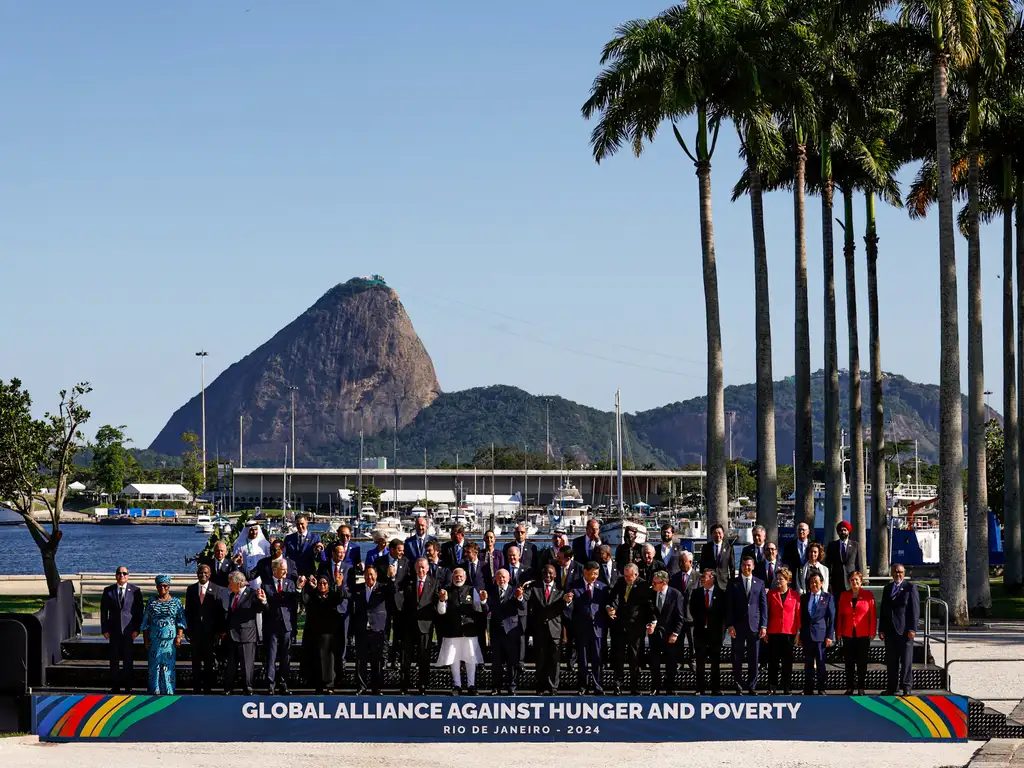G20: how does the summit that brings together the biggest world leaders work?

Publication date: November 18, 2024, 6:00 pm, Updated: November 18, 2024, 6:24 pm
Representatives of the 20 largest economies in the world have been meeting since Monday (18) in Rio de Janeiro to discuss economics, sustainability, health, agriculture and other topics. This is the first time that Brazil presides over and hosts the G20 — a group that emerged in 1999 after the Asian financial crisis — and which has as members emerging and developed countries that, together, represent 85% of the world’s Gross Domestic Product and two thirds of the global population.
One of the main objectives of the meeting is to promote cooperation, focused mainly on economic and social issues, with the aim of building a fairer and more sustainable world for all.
Goals
Economy: Initially, the G20 meetings dealt essentially with economics, but over the years the themes have expanded. Even today, debating global economic and financial problems, such as financial crises, sustainable economic growth, international trade, inflation and employment, is one of the priorities of member countries.
Sustainability and climate change: The sustainable development agenda has been gaining increasing prominence at G20 meetings. Debates usually revolve around how nations can promote sustainable development, in addition to discussing targets for reducing greenhouse gas emissions, promoting renewable energy and combating global poverty.
Trade and globalization: Protectionist measures are among the main topics discussed in this topic, since their adoption could harm the development of the global economy. Other points discussed at the G20 include trade and the reduction of trade barriers.
Another group created more recently — the G20 Commercial — and formed by emerging countries united to defend their interests in international trade, especially in the agricultural sector, works for greater freedom in agricultural trade and the fight against subsidies that distort the market.
Health: The Covid-19 pandemic has increased the concern of world leaders with the issue of health and public policies surrounding the topic. The G20 has also been focusing on the issue, debating topics such as vaccine distribution and post-pandemic economic recovery.
Possible outcomes of a G20 meeting
Commitments and agreements: Joint declarations with signed commitments and agreements are among the main results of the meeting. Highlighted themes may result in new guidelines for joint compliance with the changes proposed by member countries.
Governance and response to international crises: In recent editions, the G20 has worked on reforms in international organizations — such as the International Monetary Fund and the World Bank — designed to optimize the economic power of emerging countries, such as Brazil.
Another important result that usually emerges from these meetings is coordination to respond to external crises. Wars, geopolitical conflicts that result in lack of food and energy, can find solutions in the debate in search of cooperative solutions.
Brazilian actions in the lead
Two of the actions created by Brazil ahead of the G20 presidency since 2023 are the Global Alliance to Combat Hunger and Poverty and the Global Mobilization against Climate Change — priorities among the themes of this edition.
The Global Alliance against Hunger and Poverty seeks to eradicate hunger and extreme poverty globally. To this end, it focuses efforts on policies, programs and actions that seek to ensure food security and promote sustainable development
By Brasil 61




